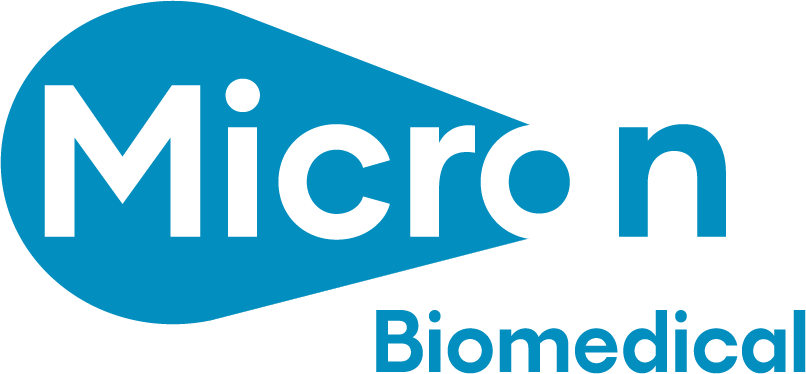U.S. Department of Health and Human Services (HHS) office, BARDA, awards Micron $2 million to continue its work on broadly-protecting avian and seasonal flu vaccines
January 14, 2025, SAN FRANCISCO, CA — Micron Biomedical, a life science company developing the world’s first needle-free technology for drugs and vaccines that is based on dissolvable microarrays, today announced the company won the Biomedical Advanced Research and Development Authority (BARDA) Patch Forward competition and presented at an event during the J.P. Morgan Healthcare Conference and Biotech Showcase in San Francisco. The $2 million prize is intended to advance Micron’s work to co-develop needle-free versions of mRNA based broadly-protecting influenza vaccines with Zipcode Bio, a biotechnology company focusing on next-gen RNA medicines, co-founded by Nobel laureate, Dr. Drew Weissman and Dr. Jason Zhang.
“Making all vaccines, including influenza vaccines, more broadly protecting and more accessible has the potential to save lives globally and we are thrilled to be recognized by the United States’ Department of Health and Human Services, BARDA, as one of the most important vaccine innovations rethinking how vaccines will be administered,” said Steven Damon, CEO of Micron Biomedical. “We are thrilled to continue our collaboration with Zipcode Bio and accelerate efforts to make the dream of needle-free broadly-protecting influenza vaccines a reality.”
According to the World Health Organization, hundreds of thousands of people die of influenza infections each year and millions more experience severe symptoms. Additionally, the organization predicts “a future influenza pandemic is inevitable” due to the efficient way influenza is spread through talking and coughing. According to the CDC, everyone age 6 months or older should be vaccinated with limited exceptions and currently available flu vaccines must be re-administered every year. However, the number of people receiving vaccinations continues to decline.
“The BARDA Patch Forward prize is a critical step forward to advance science that has the potential to reduce the impact of influenza globally as the broadly protecting influenza vaccine being developed by Zipcode could allow for less frequent changes in flu vaccines and Micron Biomedical’s microarray technology has the potential to significantly increase vaccination rates with a painless and significantly more convenient option,” said Jason Zhang, CEO and co-founder of Zipcode Bio.
According to BARDA, The Patch Forward Prize is the among the largest incentive prizes in the history of the federal government. The prize is part of the US government’s larger $5 billion dollar initiative, Project NextGen. Project NextGen’s goal is to accelerate and streamline the rapid development of the next generation of vaccines and treatments through public-private collaborations.
“Despite remarkable technological advances in medicine, most vaccines are still administered with technology that is over 170 years old: the syringe and needle. This outdated process must evolve to meet the world’s modern needs,” said Sandeep Patel, immediate past head of BARDA DRiVe. “The microarray technology Micron Biomedical has developed, has the opportunity to completely change how vaccines reach people and help us respond faster to future epidemics. Combine this needle-free administration with an agile and versatile vaccine platform like mRNA and what you have is truly groundbreaking.”
Micron’s technology uses a dissolvable microarray “button” that is applied to the skin, and when pushed, painlessly delivers a vaccine or therapeutic directly into the uppermost dermal layers and can be self-administered or administered by a caregiver or parent. Drug delivery is complete within moments and the technology can be removed from the skin and discarded as non-sharps waste. Micron’s technology is thermostable and eliminates or reduces the need for cold chain transport and storage, and has been recognized for its potential to achieve positive global impact and be game-changing in hard-to-reach settings.
Earlier this year, Micron announced receipt of a $7.5 million grant from the Bill & Melinda Gates Foundation, totalling $43 million in support from the organization to date, to fund mass production of Micron’s needle-free vaccines and enable commercialization of the first microarray technology-based measles-rubella vaccine, indicated for children as young as 9 months; and a $3.7M grant from CEPI to accelerate needle-free vaccines against Disease X.
About Micron Biomedical
Micron Biomedical is the leader in dissolvable microarray-based, drug and vaccine administration technology. Micron Biomedical is a clinical-stage life science company on a rapid path to commercializing its proprietary dissolvable, microarray technology. Micron’s technology is designed to improve access and achieve better health outcomes globally through injection-free, painless, and simple and/or self-administration of drugs and vaccines, and by eliminating or reducing the need for cold chain transport and storage, enhancing safety and efficacy, and improving patient compliance. Micron partners with and/or receives funding from private and public entities including pharmaceutical and biotech companies, the Bill & Melinda Gates Foundation, the Centers for Disease Control and Prevention (CDC), PATH and the Georgia Research Alliance.
For more information visit www.micronbiomedical.com.
